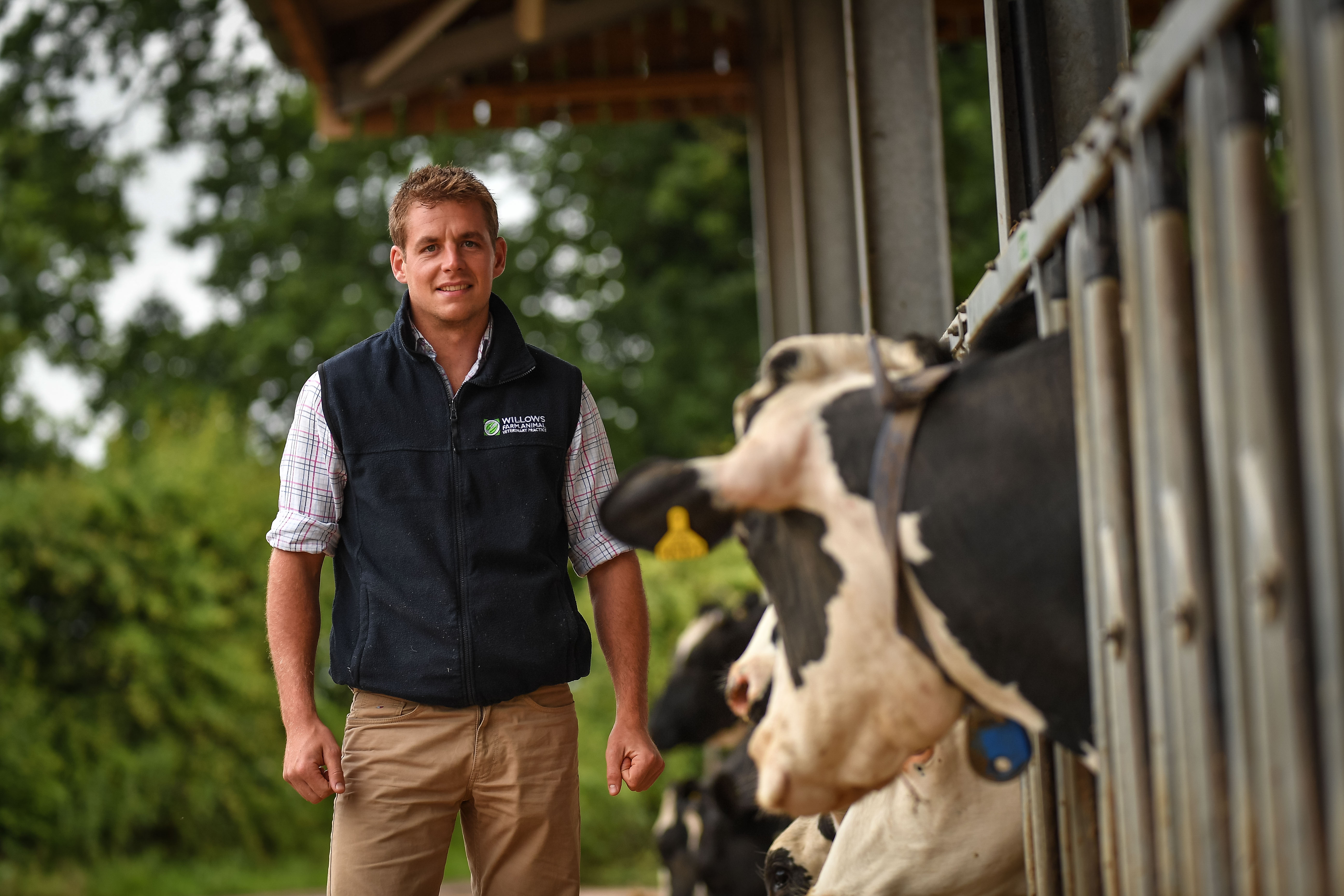
A young farm vet who travelled to the other side of the world to learn more about the dairy industry has been made a divisional partner for an independently-owned veterinary group.
Rising veterinary star Jonny Duncan, 28, of Tarporley spent five months in New Zealand to learn more about the techniques and practices employed by the country’s successful dairy industry and its vets.
His growing knowledge and obvious dedication to his work has not gone unnoticed and he has been appointed as a Divisional Partner for Willows Veterinary Group which owns Willows Farm Vets in Chester Road, Hartford, Cheshire, where Jonny is a member of the team.
He has also been identified as ‘a key opinion leader of the future’ by global pharmaceutical company Boehringer Ingelheim which meant he was invited to Holland last year to be part of a Milk Quality Academy set up to train specialist vets about the latest developments in the mastitis and milk quality world.
The 28-year-old vet who is a keen surfer, wake boarder and rugby player in his spare time, said: "I spent eight weeks working in New Zealand on the South Island in a place called Ashburton. The second job I had was on the North Island for 12 weeks in the Waikato region.
"In New Zealand, 98 per cent of herds graze outside all year round which is a similar system to some of my clients in Cheshire but others in the UK keep their herds in all year round so it was interesting for me to see the New Zealand system in operation and to see how the vets over there work with it.
"They also have different breeds of cattle and often much larger herds which brought a fresh perspective to my learning too.
"This is important knowledge for my job and one of the things I really enjoy about being a farm vet is the fact that I work with a variety of farms with a variety of systems.
"It is vital that I learn about and understand this so I can make the best possible decisions and judgements for the best welfare of their animals.
"There is no right or wrong. The system is directed to by the farm buildings and land available, and the breed of cow is chosen to suit the system.
"It is up to me to up skill myself in dealing with all types of system, as there is a wide variety of types of dairy business in the UK. Other parts of the world don't have such diversity."
On to America
His thirst for knowledge of the dairy industry will now take him to the United States later this year.
Jonny said: "I have organised a trip to America for two weeks to experience the North American high input/high output dairy farms with one of the well known veterinary advisors in the states of Iowa, South Dakota and Minnesota.
"The farms in this area tend to be very large and keep the cows indoors all year round, and I have many clients who also farm with this type of system too."
Jonny, who is to start a diploma in bovine reproduction in September, graduated in 2010 from Glasgow University and has spent 100 per cent of his career with farm animals.
Knowing this was his chosen career path, he jumped at the chance after graduating of joining Willows Veterinary Group in Cheshire where there is a huge agricultural economy and 98 per cent of the work is with dairy cattle.
Willows Veterinary Group offers a wealth of knowledge and expertise through 24 small animal practices, a referral veterinary hospital, two equine centres and a five-office farm practice which are located across Cheshire and into the Wirral and Staffordshire. Willows is accredited by The Royal College of Veterinary Surgeons.
Jonny spent many of his childhood summers helping out on the family farm, run by his Uncle, so agriculture runs in the family but Jonny’s father chose a different path and forged a high flying career in the oil industry.
His father’s talent for business nurtured an interest in his son who takes the responsibility of understanding farming as a profitable business seriously.
He said: "It is important as a farm vet that you are interested in and understand the economic side of the farming industry.
"It is about understanding and communicating how our advice on the health and welfare of the animals can in turn increase profitability and productivity for the farm."
